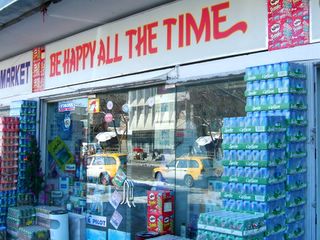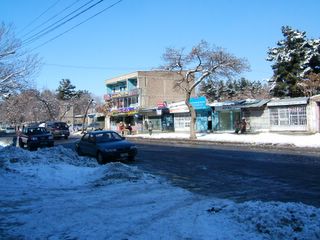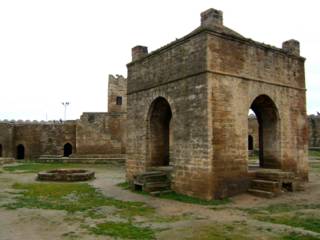Sunday, January 30, 2005
Saturday, January 29, 2005
Safety Committee
I’ve been working on a mystery set in 1849 San Francisco. According to the histories I’ve read of that period, there were “safety committees” who would escort women about on the street whether they liked it or not. The heroine of my story finds this infuriating. After a week in Kabul, I sympathize.
I’m not asking to run topless through a mosque. All I want to do is walk down the street when I want to walk down the street. Just to GO OUTDOORS. But here the simplest excursion becomes an exercise in logistics. Is there a man available to go along? When? Who? Does he speak English? Oh wait, you want to go too? Okay, when are we all available? You want to go where now?
But more than the logistics, it’s the sheer unfairness of it all that drives me bananas. I seethe with envy when I see western men walk down the streets alone. It’s wrong! WRONG!
Where the Streets Have No Name
I spend a lot of the day on the road. Traffic in most third world countries is chaotic, with cars making four lanes out of two, and Kabul is no exception. However, to the credit of the Kabul traffic police, the roads are not quite as insane as, say, Cairo. Or perhaps it’s simply because the excessive volume of traffic slows the drivers, making the roads less terrifying. Pity the bikers, however. The number of bicyclists here rivals Amsterdam. They weave in and out of traffic in a manner that can only be described as suicidal, and yesterday, during a snowstorm, was no exception. Traffic had been reduced to a crawl, and cars on bald tires spun slowly through intersections, miraculously avoiding collision as if in a well-choreographed waltz.
And like the song says, the streets in Kabul really don’t have names (and I thought U2 was speaking metaphorically!). Recently, a system of numbering the roads was implemented. However, most addresses still go something like this:
Opposite the NGO Counterpart; or
Near the Cinema Bahresitan.
Even if your driver knows the landmarks referenced, “opposite” and “near” are loose terms, resulting in much driving about in circles, down muddy side-streets and past suspicious guards armed with Kalishnikovs.
Tuesday, January 25, 2005
Security Slapdown
Argh! This afternoon I walked to the corner to buy a bottle of water. When I returned to the office, a delegation of Afghan (male) co-workers informed me that for security reasons, it walking to the corner “not allowed” for foreigners. I acquiesced, because I’ll follow the company’s rules as long as they’re paying me for it, but when they told me the “why” of the rule and how I could travel around town, it was all I could do to maintain my stiff smile. I won’t go into details (for security reasons – ha!), but essentially, several months ago something bad happened to someone doing Activity X. Therefore, I am not allowed to do Activity Z. However, I am still allowed to do X – the very activity that got that someone into so much trouble. I’m not going to point out this flaw in their logic – they’ll probably just confine me to quarters for the duration.
What bugs me the most is that my trip to buy water was the highlight of my day – fumbling around trying to communicate, learning a new Afghan word, mixing up my “hellos” and “goodbyes.” The little man who sold the water to me was clearly tickled to have a foreigner in his kiosk. When I last visited Kabul, the best part of my visit was interacting with the people. Now my ability to do that is more limited. It’s frustrating as hell, but I’ll take what I can get.
I wish I had a better understanding of the security situation here. But I’ll play it by the company’s rules, even if they make me want to spit.
Monday, January 24, 2005
A Snowy Day in Kabul
“When the traveler from the south beholds Kabul, its ring of poplars, its mauve mountains where a fine layer of snow is smoking, and the kits that vibrate in the autumn air above the bazaar, he flatters himself on that he has come to the end of the world. On the contrary, he has just reached its center.”
- Nicolas Bouvier, L’Usage du Monde
Unfortunately, today the phrases “frozen wasteland” and “middle of nowhere” are more apropos. Kabul’s low mud-brick buildings disappear into the white hillsides, and the ring of poplars was destroyed by years of drought and civil war. It’s not actually that cold, but the lack of electricity and insulation make life miserable. You shiver beneath pounds of blankets at night and dine in parka and wooly hat. Shower at your peril in a bathroom where you can see your breath in the air. At the first guest house I stayed at, the room had high ceilings, giant picture windows, and a single space heater which didn’t stand a chance. I awoke early in the morning to move the space heater to the bathroom, thinking I might shower without contracting pneumonia. But after running through my yoga routine, I turned on the taps to discover no water – another frequent headache in Kabul, along with no “landline” telephones. If you want to make a call, you need a cell phone, period. And yet, somehow, we have Internet connections. The lines must exist; perhaps a company to run them does not?
Sunday, January 23, 2005
Baku
I was stranded in Baku. I hadn’t budgeted for being stranded in Baku. But a snowstorm had closed the Kabul airport and I was stuck. By Saturday I had no cash to speak of and was reduced to subsisting on Snickers bars. (There were healthier alternatives, but chocolate was more attractive.) So it was a relief when I was able to flee Azerbaijan on Sunday. Kabul never sounded so good. There was money waiting for me in Kabul!
On the flight there, I sat next to a young American working on a construction project in Kabul. His firm had decreed that he could not leave the compound for security (i.e. liability) reasons. This meant that he spent months at a time seeing only the compound walls and his fellow inmates. He hated Kabul.
“Everyone hates Americans,” he said. I wanted to ask him why he thought so, since he’d already confessed he never interacted with Afghanis or ventured into the city. But the man was already continuing. He talked non-stop, and I wondered if it was because he was facing three months of confinement and wanted to get as much in as possible with someone new. “It’s dangerous,” he said. “Are you getting picked up at the airport? Does your driver carry a gun?”
“No,” I said, startled by the idea of my elderly drivers packing heat. My idea of good security was to drive around in a beat-up car so you didn’t stand out and to listen to the advice of the locals. There are certainly situations where armed escorts are a good idea, but my past experience in Kabul had led me to believe that this was not one of them.
He gave me a meditative look. “It’s dangerous out there. Last November there was a suicide bomber on Chicken Street -- killed an American woman."
"But that was unusual, wasn't it?" I said, feeling uneasy. Had my judgment about the security situation been wrong?
"Something is always happening somewhere in Kabul. God, I hate Kabul. You actually work with the people?” his voice rose in disbelief.
I replied in the affirmative.
“And how is it?”
I told him it was interesting, the best part of the job.
He looked dubious. “I hate Kabul.”
Tuesday, January 04, 2005
Why a Blog?
I decided to try blogging because in the places I work, e-mailing is generally slow and difficult. A blog, I thought, might simplify things. I also wanted to let folks know what I was up to, especially now.
There's been a lot of talk in the media about how much the world hates America.
Baloney.
In my ten years as an aid worker in second and third world countries, ingratitude hasn't been my experience. I've only encountered appreciation and hospitality from the host-country nationals (HCNs) I've worked with. The most common "complaint" I heard was that the US government provided more assistance than the local government did.
Of course, neither are we universally loved. But does America really want to be? Universal popularity is neither realistic nor desirable, in my opinion. I think we have the right and the duty to choose our friends carefully.
My first trip to Afghanistan was in September, 2004. I was nervous, largely because I hadn't heard much about Afghanistan in the news. I should have guessed that no news was good news. But I was also nervous because I'm an American female, and it wasn't so long ago that we'd been at war with Afghanistan. How would I be treated?
Answer: like an honored guest. The positive response from the Afghans I encountered was overwhelming -- so much so that I was suspicious. Were they just kissing up to the "rich foreigner?" Lying to make me feel good?
So I began pressing the Afghans I met on just *why* they liked America so much. After all, we'd bombed them!
The universal response was a look of disbelief. "The Americans bombed Afghanistan for 40 days. We bombed each other for over twenty years! And now America is helping us rebuild. Why *wouldn't* we like America?!"
I finally got one Afghan to admit that he thought American soldiers were bad drivers. This seemed a bit rich to me as the chaos on the streets of Kabul rivals that of Cairo. But in the interest of fairness, I'll grant that there is a white-knuckle driving "style" in Kabul and foreigners used to white lines on the pavement and stoplights that work probably do muck things up.
I'm returning to Afghanistan in two weeks and this time, I'm getting outside Kabul. Will my experience be the same? Have things changed since their election for better or worse?



